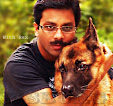Pack Management Mistakes That Most Dog Owners Make
Pack management begins with critically observing and understanding each dog in a pack. The biggest mistake that most dog owners make is considering all dogs in a pack as same.Dogs are social animals with unique behavior and ingrained pack instincts, and maintain a balanced dominance hierarchy within a particular pack. However, conflicts occur between dogs within a pack when any one or more dogs in the pack behave beyond the pack's naturally set rule. Same things happen within a pack of several domesticated dogs, irrespective of breeds, size and group. Understanding and managing complex social behaviors of your dogs housed together is essentially necessary to maintain a pack smoothly. However, another big mistake that most dog owners make is housing several dogs together without indulging themselves in learing behaviors of each dog. It is at this point that a professional canine behaviorist's role comes to play. If you are a new owner or do not have much experience in keeping more than one dogs at a time together you should, at the very outset, learn from the mistakes that I had made in my early days, and then eventually I realized that pack management is both an art and science, and immensely important skill that any dog owner should posses to be a successful pack leader.
Here are a few very big mistakes that I had made...
Failing to analyze each dog's behavior: Analyzing each dog and his or her behavior is more than important, failing which may generate potential problem within your pack! Consider observing each dog separately. Powerful observation can only help you to analyze behaviors and characteristics of each dog in a pack. There is not single, suite-to-all strategy to manage a pack. It depends hugely on the breeds you deal with. Characteristics, behaviors and temperament vary from breed to breed. Even within a single breed, two dogs may exhibit distinctive behavior. It is only after a careful observation that you can analyze each dog. Use your judgement and be intuitive about formulating a custom strategy to manage your pack. I would suggest you to get in touch with a professionally skilled behaviorist before you should rely on your own judgement.
Failing to set rules for your pack: This can end up with disciplinary issues and conflicts within the pack. It is important for you to know clearly what you DON'T want in the pack. Sticking to the rules strictly is even more important and a challenge as well. However, it is highly recommended to set rule for your pack keeping humane treatment in mind. Any deviation from the pack rules indicates your inefficiency of behind a pack leader.
Failing to maintain the hierarchical structure: This will certainly lead to clashes and conflicts between members of a pack. Identify the alfa member of the pack and it is important to support him/ her as long as the pack rules are not broken. Establishing hierarchy is highly significant. In a pack of several dogs there must be an alfa member that dominates. Clashes will occur as soon as another dog tries to take over the alfa position. Being a pack leader you need to maintain the pecking order - the dominance hierarchy that your dogs establish for themselves in a natural way. It would be unwise trying to break their natural hierarchy by considering all of them as equal.
Failing to establishing pack leadership: Despite the presence of an alfa dog in your pack it is important that each dog should know that you are the leader of the pack. you need to be both benevolent and tough at the same time. Be a model of a well behaved alfa to your pack. Failing to establish pack leadership will encourage your dogs in the pack to exhibit inconsistent behavior that may disturb the pecking order - dominance hierarchy. The aim should be to reduce all possibilities of socialization mistakes.
Leading your dogs with doubts and confusion in mind: This will expose you to the risk of being an utter failure! Remember that your dogs can read your mind quite efficiently. It is important to be steady and keep your mind doubtless while teaching your dogs the pack rules. Make the dog obey on the first command. Repetition in command means your dog has still confusion in accepting you as a leader, which in turn means you are not yet perfectly capable of controlling a pack.
Introducing new member all on a sudden: Dogs are naturally very territorial with inherent instinct to protect his pack. There is no point in experimenting with a new dog being introduced in a pack; he/she will certainly fail. Keep the new dog separated for the first few days - socialization phase by building a wicket gate. The socialization phase is crucial and demands extra endeavor and time to help the new dog mingle with the existing members and get used to with the pack rules. This is typically a training phase and requires a professional's intervention.
Keeping all dogs in a single room: The worst kind of a mistake that you can make is by keeping a new dog in the same room with the existing ones. The first few hours or even the first couple of days may be smooth, but that doesn't give enough indication about a smoother future. Keep all dogs kenneled separately is an wise idea to prevent conflicts. Proper socialization of the new dog(s) is, however, too significant.
Putting the whole pack in a competitive play: This is another big mistake usually made by dog owners. Especially if your dogs are not highly obedience trained, and if you have not been able to effectively established pack leadership, then putting your dogs in competitive play can be utterly dangerous.
Expecting too much from your dog: Remember you are dealing with a pack of dogs; not a team of scientists. It would be a fool's errand on your part if you start expecting too much from your pack and each member of it. Be reasonable and practical. We are comfortable with chasing and achieving high targets in our lives, but dogs are entirely different from us humans. More over one breed from the other personality wise, characteristically and genetically. It is hence important to study your breed and more specifically your dog and you will know how much to expect from your dog(s).
I know some of you already have committed some of these mistakes; but no point repent over what you have already done. Life sails on... some dog breeds are intelligent enough to learn things even when they are old.
A Related Read: How to Establish Your Alpha Position in a Pack


























0 comments:
Post a Comment